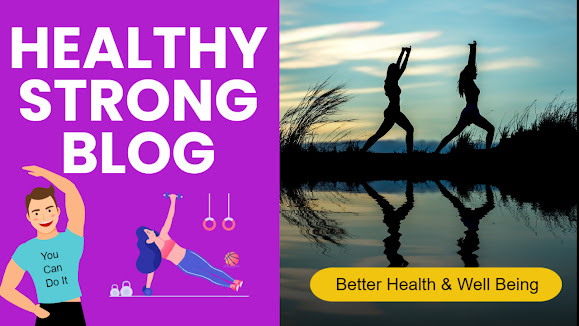Supplements to Reduce Stress: Can These Revolutionize Your Well-being?
Stress reduction supplements offer a range of benefits that can help you manage the effects of stress more effectively. They contain essential vitamins and minerals that are known to promote relaxation and reduce anxiety levels.
In this blog post, I'll share with you some of the stress reducing supplements that I've researched and found to be effective for me, based on scientific evidence and my personal experience. These are:
- Ashwagandha
- L-theanine
- Magnesium
- B-complex vitamins
- Vitamin D
I'm sure you've experienced stress at some point in your life, whether it's from work, family, or just the daily challenges of living in this fast-paced world. Stress can have negative effects on your physical and mental health, such as, fatigue headaches, depression, anxiety, and more. That's why it's important to find healthy ways to cope with stress and keep your mind and body in balance.
One way to do that is by taking supplements to reduce stress and support your well-being. Of course, supplements are not a substitute for a healthy diet, exercise, sleep, and mental health care, but they can be a helpful addition to your wellness routine. However, before you take any supplement, make sure to consult with your healthcare provider, especially if you have any medical conditions or are taking any medications.
How do Stress Reducing
Supplements Work?
Stress reducing supplements work by targeting the
body's stress response system and promoting relaxation. These supplements
typically contain ingredients such as adaptogens, vitamins, minerals, and herbs
that have been shown to have calming effects on the body.
One way these supplements work is by regulating
cortisol levels. Cortisol is a hormone released in response to stress, and high
levels of cortisol can contribute to feelings of anxiety and tension. Stress
reducing supplements often include adaptogens like ashwagandha which helps balance cortisol levels and promote a sense of calm.
Additionally, many stress reducing supplements contain
vitamins and minerals that support overall brain health and function. These
nutrients play a crucial role in neurotransmitter production and regulation,
which can impact mood and stress levels. By providing the body with these
essential nutrients, stress reducing supplements can help improve mental
well-being and reduce feelings of stress.
Let's take a closer look at each of these supplements
and how they may help you manage stress.
Ashwagandha
Nutritional experts at Life
Extension say Ashwagandha has been traditionally used to promote overall
well-being and support a healthy stress response. It is believed to possess
adaptogenic properties that help the body adapt to various stressors.
Ashwagandha is an herb that has been used for centuries in Ayurvedic medicine, a traditional system of healing from India. Ashwagandha is an adaptogen, which means it can help your body adapt to stress and regulate its effects on your system.
Ashwagandha may help lower cortisol levels, the hormone
that is released when you're stressed. High cortisol levels can cause
inflammation, weight gain, insomnia, and other problems. Ashwagandha may also
help improve mood, memory, and cognitive function.
The recommended dose of ashwagandha varies depending on the product and the person, but generally ranges from 300 to 600 milligrams (mg) per day. You can take ashwagandha in capsule, powder, or liquid form. Look for products that are standardized to contain at least 5% withanolides, the active compounds in ashwagandha.
L-theanine
.jpg) According to the experts
at Life Extension, L-theanine has been extensively studied for its potential
health benefits and is known to promote relaxation without causing drowsiness.
It is believed to enhance cognitive function, reduce stress and anxiety, and
improve sleep quality.
According to the experts
at Life Extension, L-theanine has been extensively studied for its potential
health benefits and is known to promote relaxation without causing drowsiness.
It is believed to enhance cognitive function, reduce stress and anxiety, and
improve sleep quality.
L-theanine is an amino acid that is naturally found in
green tea leaves. It may help ease stress and anxiety by boosting levels of
gamma-aminobutyric acid (GABA), serotonin, and dopamine in your brain. These
are neurotransmitters that regulate mood, relaxation, and sleep.
L-theanine may also help you get a better night's sleep
by improving the quality and duration of your sleep cycles. A good night's
sleep is essential for reducing stress and enhancing your well-being.
The recommended dose of L-theanine is 200 to 400 mg per day. You can take L-theanine in capsule or powder form, or drink green tea for a natural source of L-theanine. However, keep in mind that green tea also contains caffeine, which may interfere with your sleep if you drink it too close to bedtime.
Magnesium
Magnesium is a mineral that is involved in over 300
biochemical reactions in your body, including nerve and muscle function, blood
pressure regulation, energy production, and more. Magnesium is also important
for maintaining healthy levels of GABA in your brain.
Magnesium deficiency is common among people who are
stressed, as stress can deplete magnesium levels in your body. Low magnesium
levels can worsen stress symptoms such as muscle tension, headaches, insomnia,
irritability, and anxiety.
The recommended daily intake of magnesium for adults is
310 to 420 mg per day. Foods like leafy greens, nuts, vegetables such as kale
and spinach, whole grains such as quinoa and brown rice, seeds like pumpkin seeds
and almonds, and legumes such as lentils and black beans are all sources of
magnesium that you can include in your diet. These foods can be easily incorporated into your diet to
ensure you're getting enough magnesium.
B-Complex
Vitamins
B
vitamins are essential for maintaining good mental health and reducing stress
levels. They play a crucial role in the production of neurotransmitters like
serotonin, dopamine, and norepinephrine, which regulate mood and emotions. Research
has shown that deficiencies in certain B vitamins, such as vitamin B6 and
vitamin B12, can lead to increased anxiety and stress levels.
By taking a B-complex supplement, you can ensure that your body has an adequate supply of these important vitamins. However, it's important to note that while B-complex vitamins can be beneficial for managing stress and anxiety, they should not be seen as a standalone treatment. It's always best to consult with a healthcare professional before starting any new supplements or treatments for mental health concerns.
Vitamin D
Research has shown a link
between low levels of vitamin D and an increased risk of developing mood
disorders such as depression and anxiety. Vitamin D plays a crucial role in the
regulation of serotonin, a neurotransmitter that is involved in mood
regulation. When our vitamin D levels are low, it can disrupt the production
and function of serotonin, leading to increased feelings of stress and anxiety.
To ensure you're getting enough vitamin D, it's important to spend time outdoors in the sunlight as this is the most effective way for our bodies to produce vitamin D naturally.
If you live in an area with limited sunlight or have difficulty
getting outside regularly, you may want to consider taking a vitamin D
supplement. Nutritionists say incorporating foods rich in vitamin D such
as fatty fish, fortified dairy products, and eggs into your diet can also help
boost your levels naturally. Check with your doctor first.
Studies have shown that low levels of B-complex
vitamins and Vitamin D are associated with increased stress, anxiety,
depression, and fatigue. For example, a study by Young et al. (2019) found that
supplementing with B-complex vitamins for 90 days improved mood, stress, mental
health, and cognitive performance in healthy adults. Another study by Penckofer
et al. (2010) found that supplementing with Vitamin D for 12 weeks reduced
depression symptoms in women with diabetes.
Therefore, taking B-complex vitamins and Vitamin D as
supplements may be a beneficial strategy to reduce stress and improve our
well-being. Again, consult your health care provider for your specific needs.
Final Thoughts
Supplements can be a helpful addition to reducing stress levels. By targeting specific stress hormones and promoting relaxation, these supplements provide a natural and effective way to manage stress.
However, it is important to remember that
supplements should not be relied upon as the sole solution for stress
management. Incorporating healthy lifestyle habits, such as regular exercise, a
balanced diet, and practicing self-care techniques, is crucial in maintaining
overall well-being.
It
is always recommended to consult with a healthcare professional before starting
any new supplement regimen. So, if you are looking for additional support in
managing your stress levels, consider incorporating these supplements into your
routine alongside other healthy lifestyle choices. Take control of your stress
levels and prioritize your well-being today!










Comments
Post a Comment